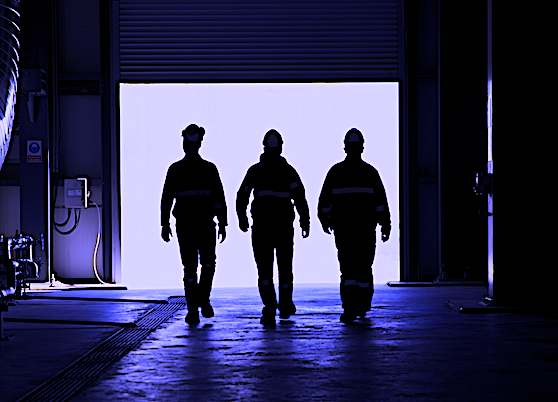Technology has changed behavior patterns in industrial operations tremendously. Some changes have been good and others not so good. As an example of the latter, I’ve observed that managers and engineers spend the majority of their time on computers and in meetings, but not much time in the plant. Employing a sports analogy, that’s akin to spending so much time in the locker room that you never get onto the field where the game is played. What’s the answer? “Management By Walking/Wandering Around” (MBWA).
The MBWA technique isn’t new. It was developed by Hewlett-Packard in the 1970s, and memorialized by Tom Peters and Robert Waterman in their seminal 1982 book, In Search of Excellence.
At face value, MBWA as a management tool is so obvious that the name and description for the process seems almost laughable. However, achieving real results from this method and, ultimately, improving asset performance requires one to have a strategy and plan of action.
First, make a commitment regarding how much time you’re going to spend walking through the facility. (I recommend that reliability engineers and asset managers commit 25-30% of their time to actively walking their plants.)
Next, create your plan of action. If the facility is large, break it into manageable pieces. The goal is to walk, not run, through the plant while leaving time to slow the pace to a crawl, as required.
It’s also important to have a checklist to guide your MBWA tour. This type of checklist should include technical standards and behavioral norms that you’re trying to improve or reinforce. Be sure to take a camera, e.g., mobile phone or other device, and have some means of taking notes and recording follow-up action items.
As for your own behaviors during the MBWA, I suggest that you focus s on looking, listening, touching, and hearing. No, that’s not a typo: You listen to your machines. You need to hear the operators and maintainers in the field. We’re born with two ears and one mouth, and should use them in that ratio during an MBWA.
Take some time to get to know the folks you encounter in your walk. Ask them about their children, the sports teams they follow, progress on hobbies, etc. Be a human. Ask them for their ideas about how to fix a problem or improve a process. Too often, managers and engineers try to solve problems in their offices and meetings rooms without engaging the people who are operating and maintaining the assets.
Over the past 30 years, I’ve found that most of the good ideas come from the folks on the plant floor, but you must listen to them. When a good idea comes from the plant floor, follow through to make sure it is implemented. Then, publicly commend those from whom the idea originated and the team responsible for its implementation. A good leader absorbs criticism and deflects praise. Intrinsic rewards, such as recognition, motivate individuals and entire teams.
In addition to allowing you to gather information about the plant, its condition, opportunities, and threats, MBWA discussions on the plant floor give you a chance to socialize with team members about the goals for the site’s asset-management strategies and tactics; explain why those strategies and tactics are important to the organization; and describe what success looks like. It also provides an excellent opportunity for you to clarify each team member’s role in achieving that success and the WIFMs (what’s in it for me) they might expect.
In short, MBWA is a powerful tool for improving the performance of plant assets. So shut down your computer, and go walk around.TRR
ABOUT THE AUTHOR
Drew Troyer has 30 years of experience in the RAM arena. Currently a Principal with T.A. Cook Consultants, he was a Co-founder and former CEO of Noria Corporation. A trusted advisor to a global blue chip client base, this industry veteran has authored or co-authored more than 250 books, chapters, course books, articles, and technical papers and is popular keynote and technical speaker at conferences around the world. Drew is a Certified Reliability Engineer (CRE), Certified Maintenance & Reliability Professional (CMRP), holds B.S. and M.B.A. degrees, and is Master’s degree candidate in Environmental Sustainability at Harvard University. Contact him directly at 512-800-6031 or dtroyer@theramreview.com.
Tags: reliability, availability, maintenance, RAM, equipment health, plant operations, workforce issues



